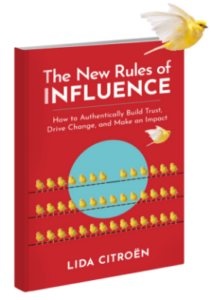Many people today find themselves unemployed and underemployed. They have skills, talents, experience and  expertise that should make them highly sought after and desirable by employers. Why, then, do they find themselves working in a job paying a wage below what is competitive or struggling to find work at all?
expertise that should make them highly sought after and desirable by employers. Why, then, do they find themselves working in a job paying a wage below what is competitive or struggling to find work at all?

I’ve always considered myself to be a survivor. I’ve told myself that no matter what, I’d find a way to make ends meet, even if I had to work at a job that was way below my skill set. I think it would be tough on my ego to work in a role that I deemed “below me,” but I know I would do it if it meant my family needed to eat. I would be naïve to think it wouldn’t sting my confidence.
Have you fallen into a pattern of turning down jobs that you deem not worthy of your greatness? Are you telling recruiting managers what you believe you’re worth, rather than focus on competitive salary?
When times are tough, the tough get going. That means that regardless of how talented, passionate, experienced and networked you are, when you accept a job that is not up to your standards, keep your personal brand in perspective. Here are some tips to remember:
- You are not defined by your job. Your job is where you work and how you contribute to your employer, community and your family. If you are working in a job that is not up to your skill set and experience, remind yourself that you might be in a role that is one of survival not career. You still possess all of your personal brand traits – those might be qualities like integrity, work ethic, commitment to family, passion for helping others, etc. A job that is less than you’d hoped for doesn’t change that. It just means you are applying your brand to a position that requires you to be more creative in how you define your narrative (story).
- Always give 100%. Most personal brands are anchored in integrity and doing the right thing. If that is true for you, then regardless of the job, you will dedicate yourself fully and wholly to what is asked of you. Integrity is not discriminating based on a pay scale. If you give 100% of yourself to what you do, you will achieve success and build a reputation as someone with a strong work ethic.
- Work a bigger plan. If you feel you are undervalued and underemployed, then make your current situation part of a greater master plan. Use your time (and income) to set a strategy to move forward. If you are earning minimum wage in a service industry and you used to earn six figures in a desk job, then consider whether you are learning tools and skills that could match up with your past experience to open a new career path. Similarly, if you are only able to secure part time work right now, consider whether you could supplement your work week with volunteer work (in a new industry) or even additional schooling and training. This gives you the power to see your current employment situation as temporary and set your sights on a bigger and more rewarding vision.
Your personal brand is anchored in your reputation. Your behavior and actions reflect your values and build how other people perceive you. That perception is not as job specific as you might think. I’ve worked with very senior executives who were promoted without warrant and who find themselves struggling with issues of self-doubt, incompetence and fear of being found out. The job title and pay scale do not determine your self worth. Only you can do that.
“It is difficult to make a man miserable while he feels worthy of himself and claims kindred to the great God who made him.” ― Abraham Lincoln



This was very insightful and true. While you may be in a job without getting respect for what you do your job is not your brand – you are !
Thanks for the comment, Eddie. Glad the post caught your attention!
The same applies to employers who are job snobs. I had my best friend who hired individuals and he said he’d never hire anyone that worked for any fast food restaurant. If they couldn’t find a job at their level of performance, it was their fault. I told him he was wrong, but he wouldn’t budge.
The same goes for employers saying, “You’re over qualified,” rather than seeing the potential for someone to add to their business. They don’t realize what potential there is in a person.
At one point I worked three jobs, including being a janitor, to makes ends meet. I approach each job/position as learning something, both good and bad. I lost 20 lbs doing that janitor job. Who would have thought that getting paid losing weight was a new weight loss program.
“Learn to do common things uncommonly well; we must always keep in mind that anything that helps fill the dinner pail is valuable.” George Washington Carver
Good points, Kevin. It goes both ways!
Couldn’t agree more with your points Lida…well said. Allowing one’s job to ‘define’ them is something that happens all too often. Not only is it being unfair to themselves – it virtually guarantees that they will not be able to achieve the balance in life needed to achieve their ‘truest selves’
Agree, Bill. At the end of the day, we are remembered for our “truest selves” and reputation, not our job title 🙂
Wow. This post is on the money (no pun intended). Great job.
Glad you enjoyed it!
Lida
It is a very difficult thing to remember that “we are not our job” because many of us “become our job”.
Years ago, I left Wall Street management for nonprofit management and I really got hit with that reality. Today I use what I learned with my career clients.
Many people are taking jobs below their knowledge base. Even as a business owner, I’ve taken a few jobs at rates lower than I’d like to. But in the end there is a plan to be and do better.
Thanks for your article. I’ll pass it onto my clients.
So true, Maria. It’s often hard to separate our egos from our job titles. I work with military veterans transitioning from service. Many of them leave stellar careers in uniform to find themselves “starting over” in the civilian workplace. This is very hard! Seeing your new job/career as a stepping stone towards something greater, and learning to separate your sense of worth from your hourly wage is important. I hope your clients enjoy the tips as well!
Many people that I know are “working full time on their J.O.B. and part time on their fortune” to coin Jim Rohn
They may be involved in a menial job because they are exerting more energy on building their dream. I’ve done this in the past as well.
Great tips. I think giving 100% goes a long ways. I also agree with the previous posters, that sometimes it’s the employer who is the snob..
Such is life.
True, Linda. It goes both ways!